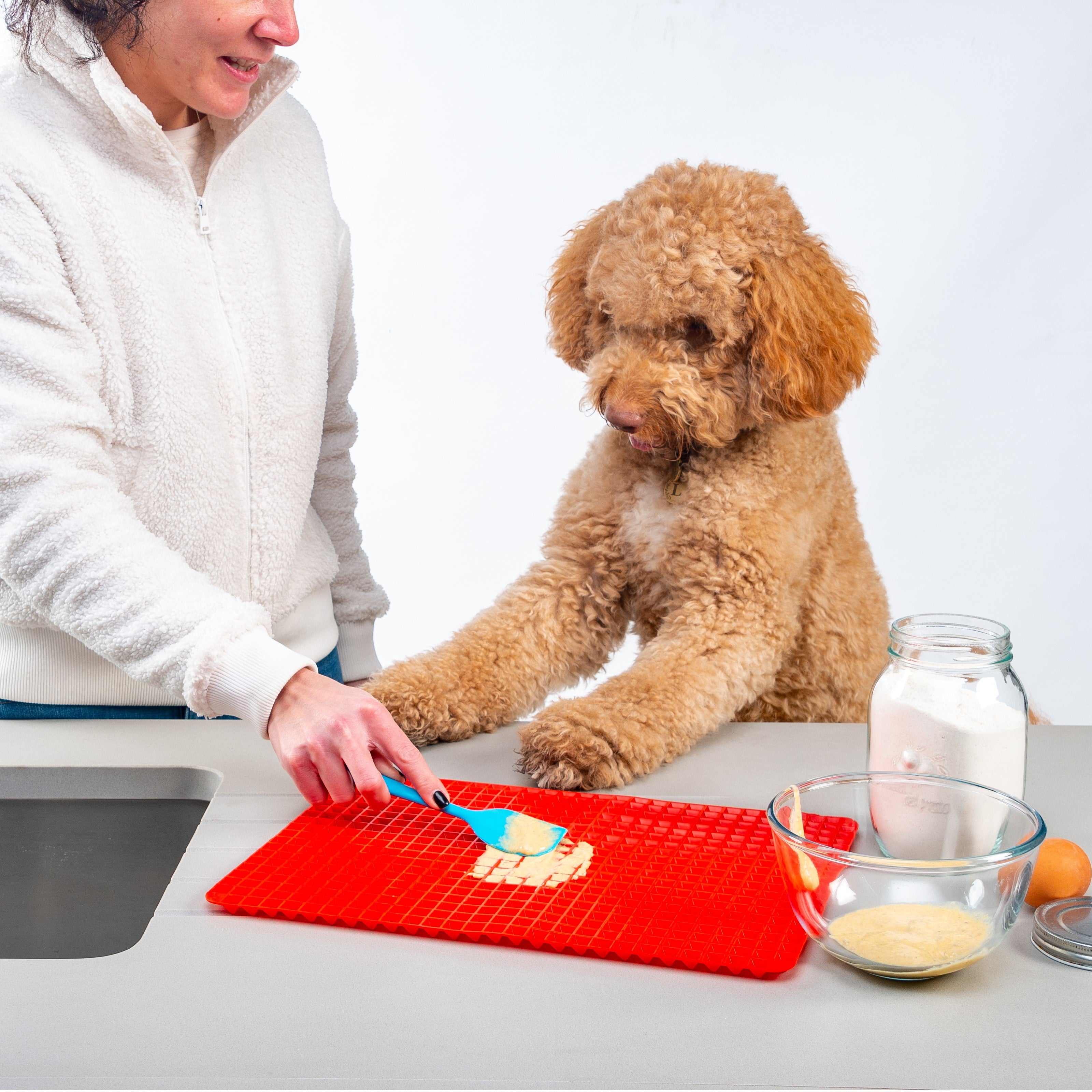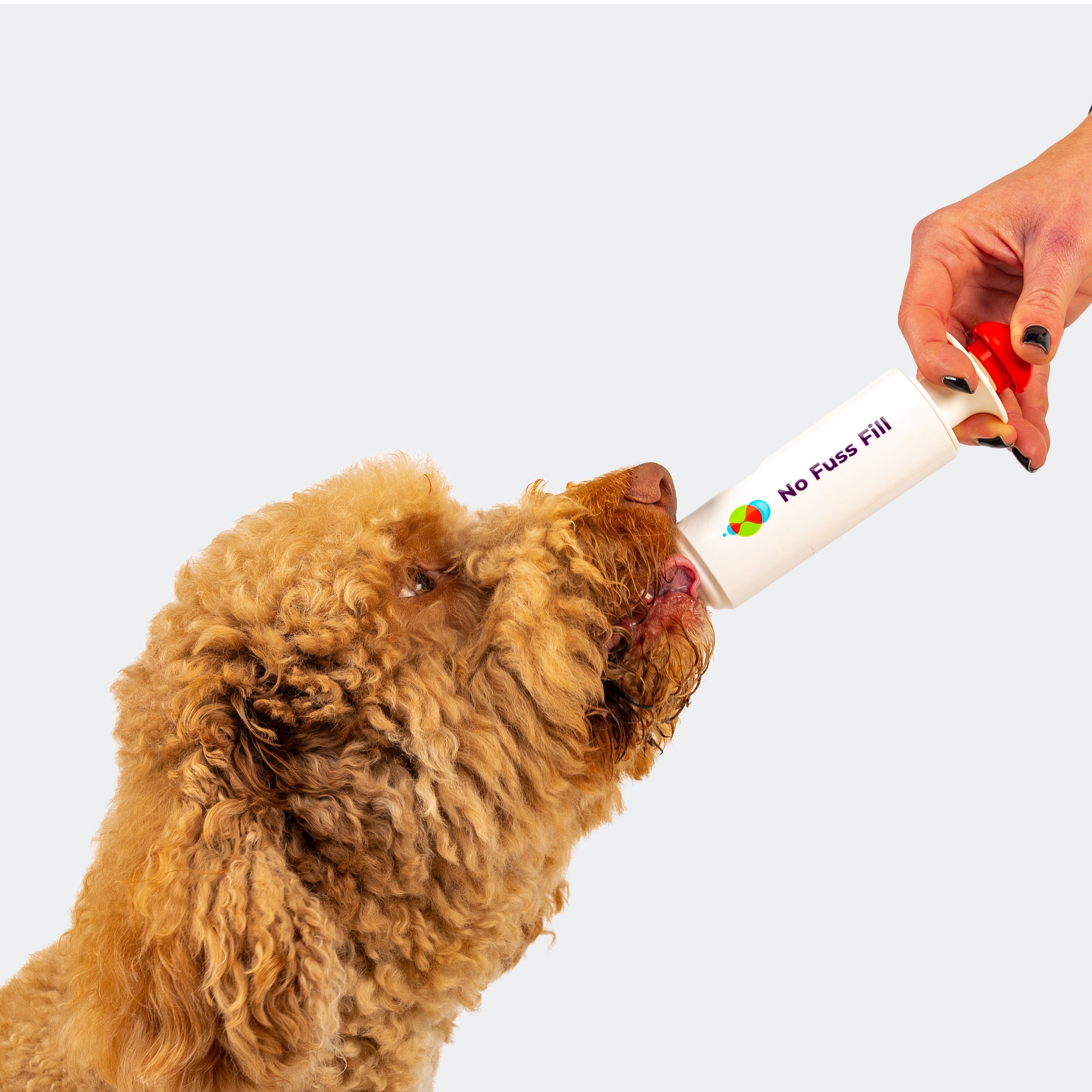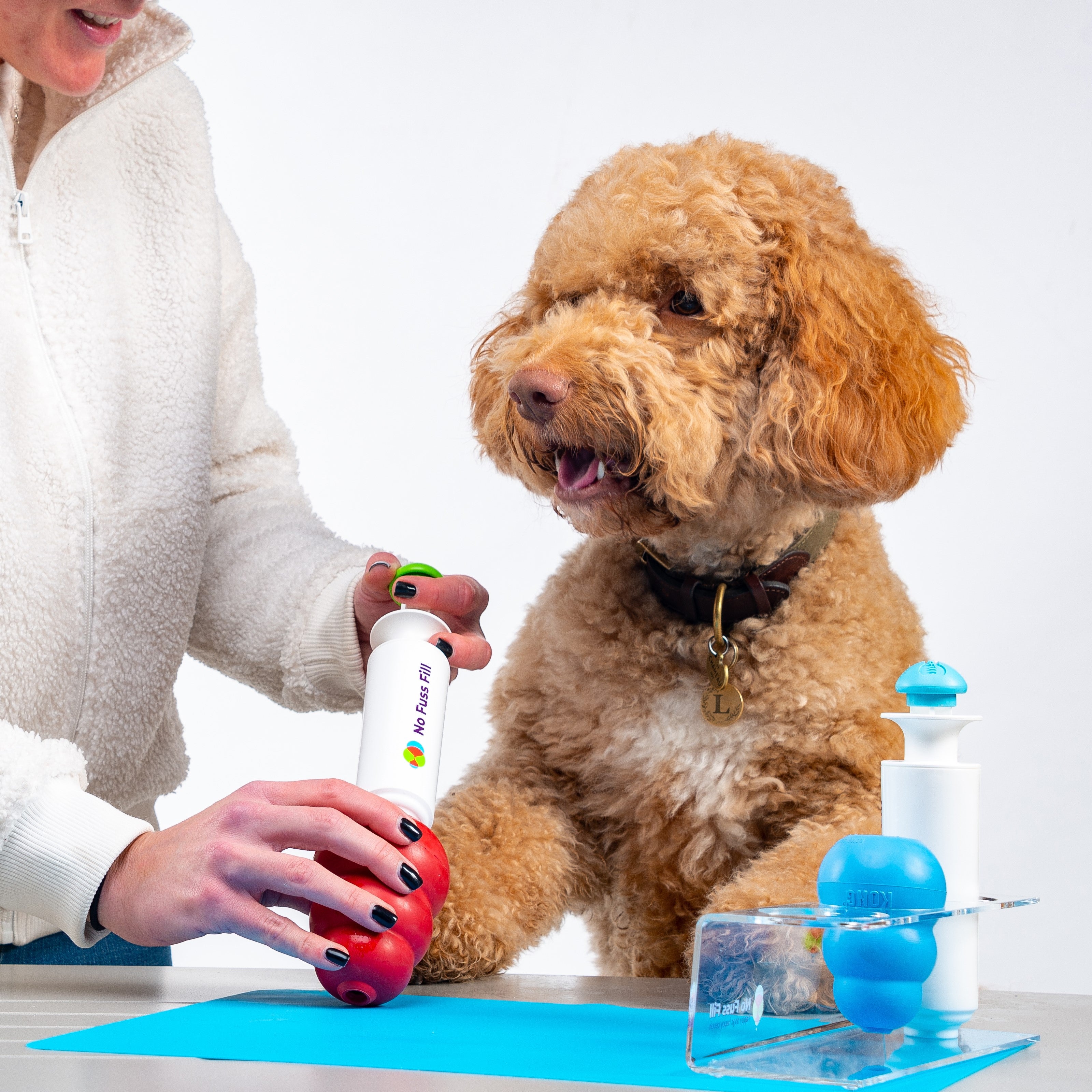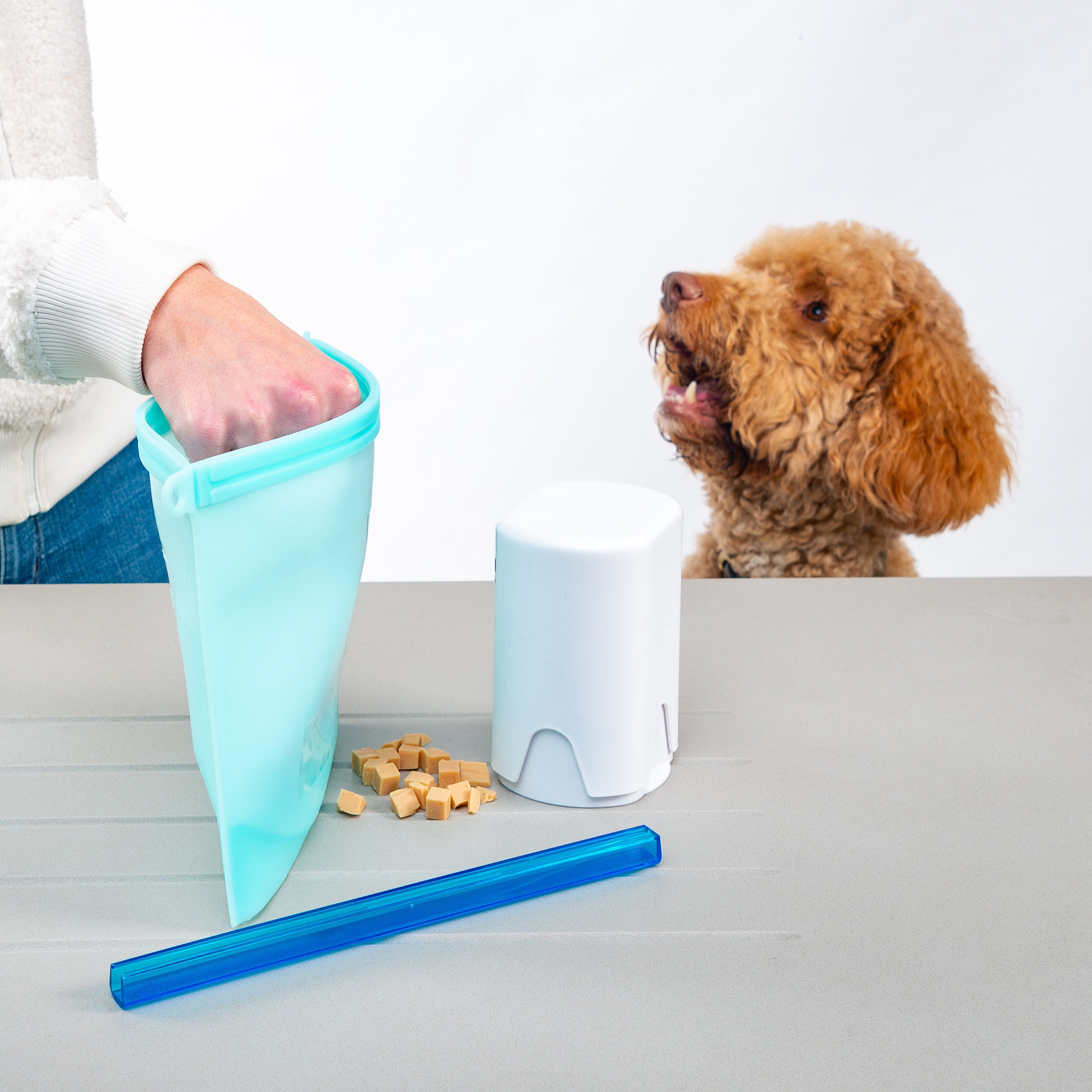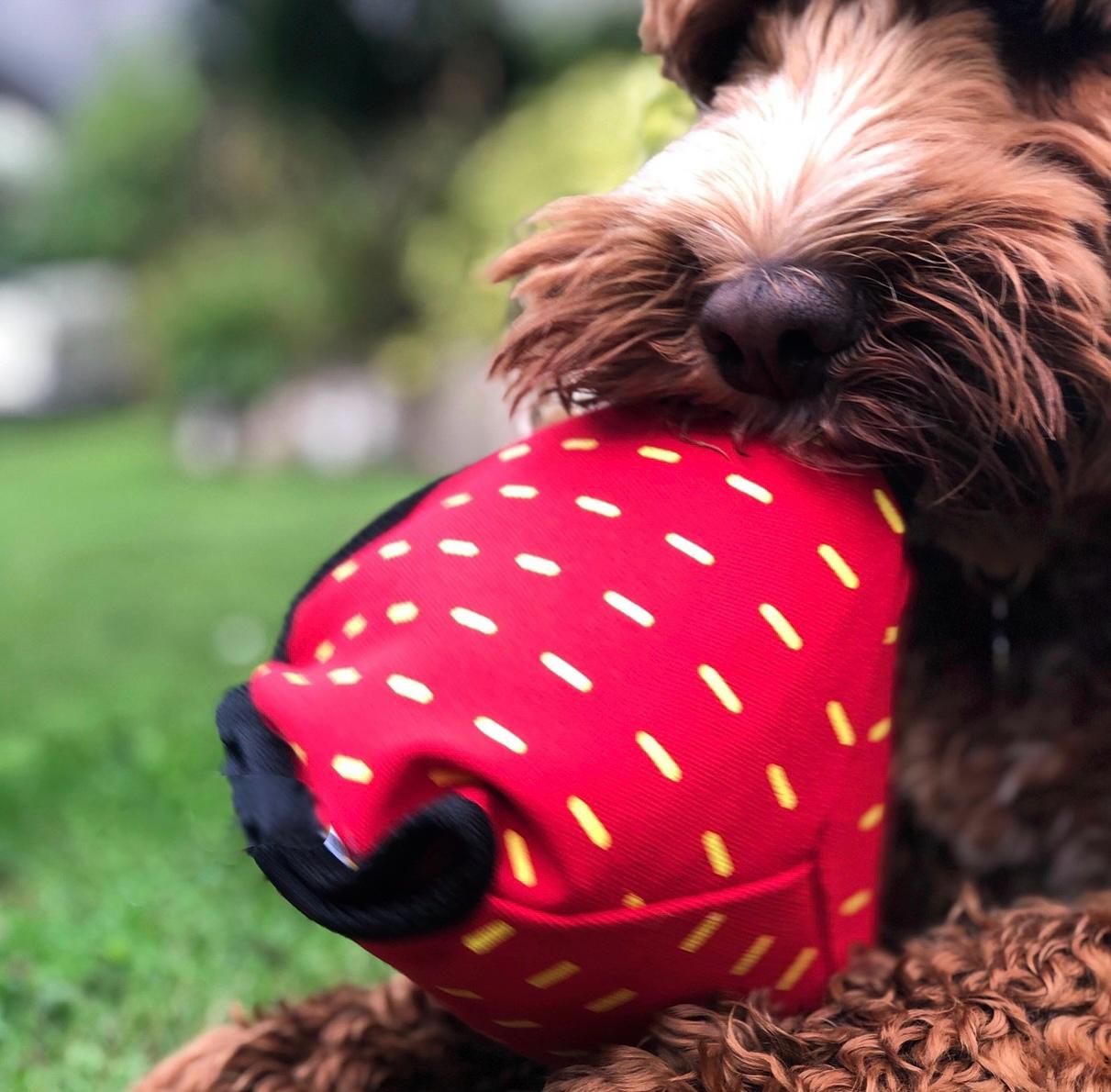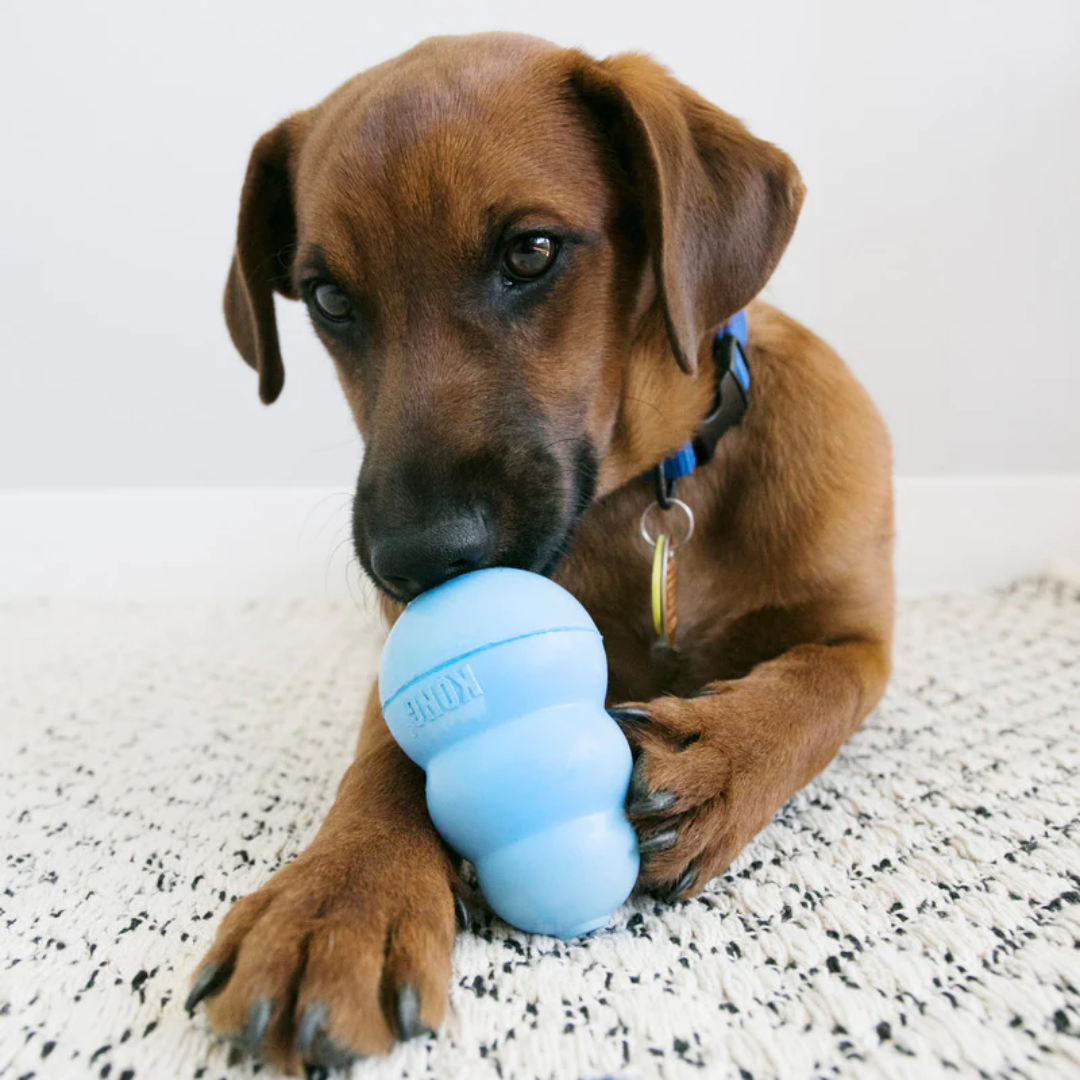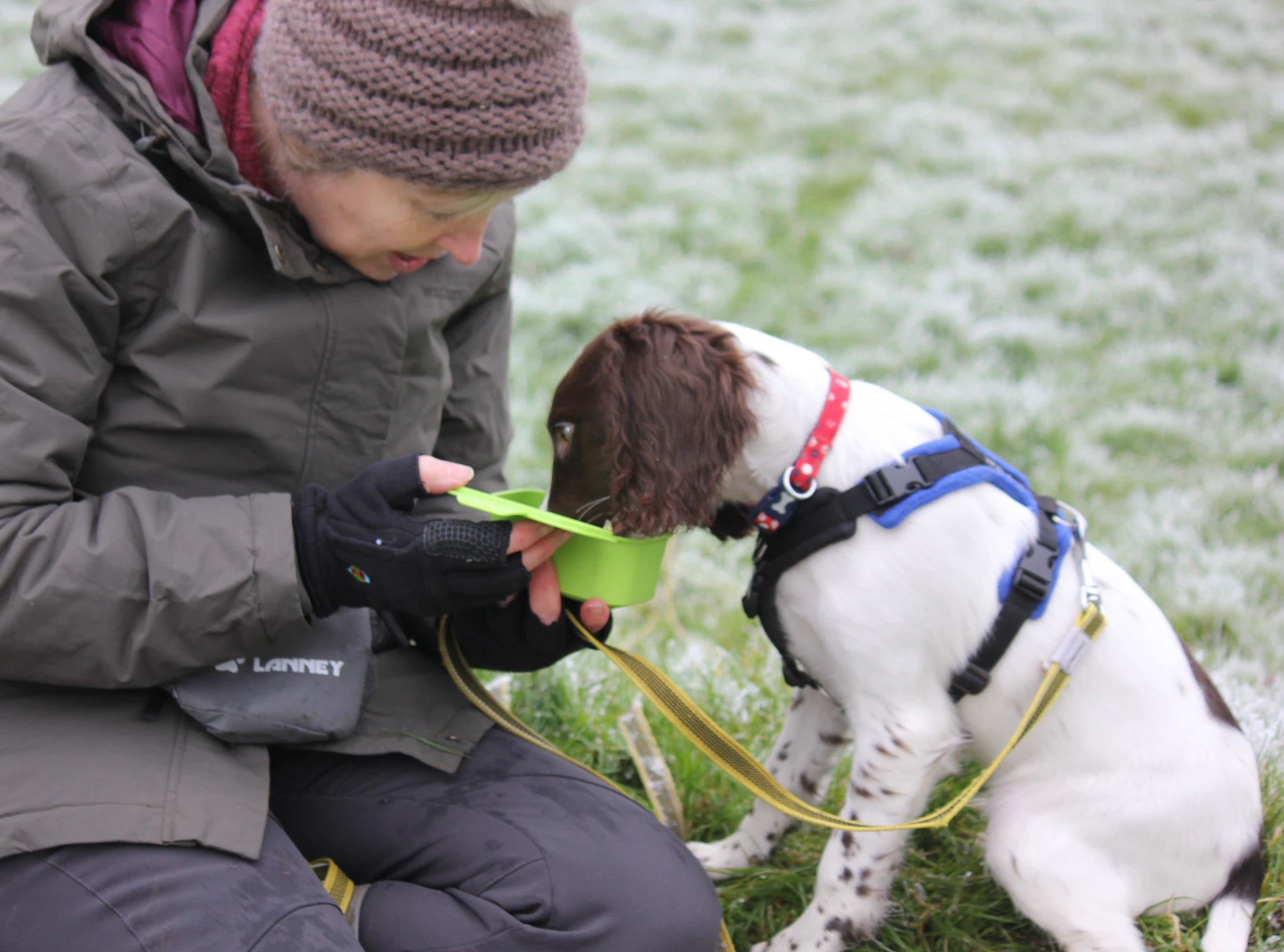
Come rain, sun, snow, or ice your dog enjoys being with you, but a question that's often asked when it comes to the winter months is, ‘are my dog’s paws ok in the snow?’
Jitka, a dog mum to 5 adventurous terriers, winner of international dog grooming competitions, including Dog Grooming Salon of the Year shares her winter paw care advice in this blog
Jitka writes;
WINTER PAW CARE
Dog paw care is extremely important because a dog’s paws take the impact of their
"LickiMats and filled enrichment toys are great for occupying your dog whilst you clean and check their paws "

Pause and think of paws
At this time of the year, we should pay more attention to our dog’s paws. In the winter months, the roads and footpaths will be covered with salt and grit.
How would you feel walking with your bare feet that have a few cracks on your heels on salty (never mind cold) roads?
Small, delicate doggies, such as the Chihuahua and other toy breeds are known for their sensitive paws.
Just the same, lean dogs, like Greyhounds, Whippets, and similar breeds are also more likely to have sensitive paws.
On the other hand, dogs like Alaskan Malamutes, Siberian Huskies, Spitz-like dogs, and Pastoral breeds have paws that are hardier and more ’outdoors’. Although this is true, we should still keep an eye on their paws too.

Ouch!
It stings because the salt dissolves, which causes the fluid surrounding the damaged tissue to become extremely hypertonic, which means that the concentration of salt and other electrolytes is higher than it is in normal body fluids.
Pain detecting neurons have their receptors in the tissue. And they respond to the stimulus i.e. the hypertonic fluid surrounding the damaged tissue.
Irritating chemicals
It’s not only the salt that bothers our dogs’ feet.
The various chemicals and sand added to the salt, providing us with more friction for our boots and cars, also contribute. These chemicals act as skin irritants and can cause dryness, irritating the skin between their pads
As if that isn’t enough what about liked paws?
If your dog takes to licking his paws after walks on this surface, he can digest the ice-melting chemicals, which can be toxic!
If you find any scratches or scrapes, an application of Vita Canis Soothing Antiseptic Spray can help.
This is an antibacterial, antiviral, antifungal, and antiseptic treatment that relieves
scratches, minor wounds, and hot spots. It regenerates damaged skin, doesn’t sting, and is safe for sensitive and allergy-prone skin.
Enjoy!
Although this might all sound scary, please don’t let it deter you from walking your dog and enjoying the time together.
